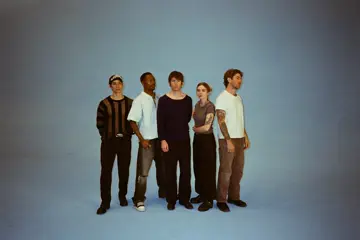spectre

Well, there goes that ‘gritty’ James Bond reboot down the toilet. With Daniel Craig publicly pronouncing he’ll soon vacate the tuxedo, Spectre marks the end of a decade-long, four-film run that attempted to reimagine Bond for the Bourne era.
From Casino Royale on, Bond was no longer some teflon colonialist playboy, ladding about the globe with a wet smirk and a dry martini. Instead, he was a flawed, vulnerable, fallible working-man; the bearer of a tortured, Bruce Wayne-esque childhood and the wearer of accumulated psychological and physical scars. It was an attempt to introduce some note of human plausibility into the Bondworld: now, when his impossibly-attractive girlfriends die, he actually cares!
After threes films blazing down this dark, determined path, Spectre attempts to come back full circle: reintegrating the tropes of classic Bond whilst not losing the glowering brow-furrowing and contemporary political awareness. It’s a task with a great degree of directorial difficulty, and Sam Mendes and a cadre of screenwriters attempt to pull it off. Attempt and, ultimately, fail.
Don't miss a beat with our FREE daily newsletter
This Bond is long (150 minutes!), dour, destructive, and almost free from levity. There’s a bunch of groaningly-forced one-liners, but nothing that plays as actual fun. This means that even when the script coughs up old spy clichés so haggard they were long ago turned into camp —or Austin Powers/OSS 117 parody, or Simpsons gags— are brought back, there’s nary a wink.
Not when Christoph Waltz appears, face darkened in shadows, the evil overlord of a secret cabal that —like the Stonecutters or the Bilderberg group— runs the world from boardroom meetings rife with pagan ritual. Not when Dave Bautista shows up as an evil, indestructible, ruthless henchman who gouges out the eyes of a polite fellow in a suit with his bare hands. Not when Craig tracks down Léa Seydoux, ‘hiding out’ in a glittering glass palace on top of an Austrian mountain that turns out to be a wellness clinic. Not even when we discover her name is, for real, Madeleine Swann (that cadre of screenwriters deciding, apparently, that one Proust reference per character name was not enough).
We’re not invited to laugh when Bond joins in a car chase in a plane. Nor when Craig and Seydoux sit down for a dining-car drink on a rattling Moroccan locomotive in 20 grand worth of evening wear and jewellery. Nor when they get out in the middle of the desert, only for a 1948 Rolls Royce to materialise out of the desert, driven by a Magical Negro right out of Driving Miss Daisy central casting. Nor when they arrive at Waltz’s evil-villain-HQ compound and find a cast of minions in matching suits, all at computers like monkeys chained to typewriters. Nor when Waltz says he’s invited Craig here for drinks... and to kill him! Nor when Craig is knocked out on the back of the head, and wakes up to find himself tied up in an ingenious torture contraption, from which he’ll never escape! Nor when Waltz tells him his plot for world domination in particular detail, cackling with delight that he’ll never be stopped.
It’s the stuff of screaming cliché, but Mendes delivers it all not just with a straight face, but with a haughty portentousness. Spectre is filled with references to the events of past Craig-starring Bond films, with the gathered weight of four instalments supposedly lending the film gravity. Instead, Spectre feels weighed down by so much baggage: needing to cater to both its recent rebooting and the franchise’s 24-film history; needing to possess MCU-level spectacle (so many buildings razed in CGI explosions!) and enough product placement to keep the corporate sponsors happy; needing to attempt to engage with contemporary global politics whilst functioning as some kind of escapism.
Ultimately, it doesn’t work; the film feeling cobbled together, committee-thought, and unsure of itself. It’s no mans idea of escapism: a chore to sit through, with no emotional heft or set-piece pay-off. Spectre marks only the unsatisfying, unfortunate end to a Bond rebranding that started out with much promise; botching the job so badly another reboot is surely in the cards.















